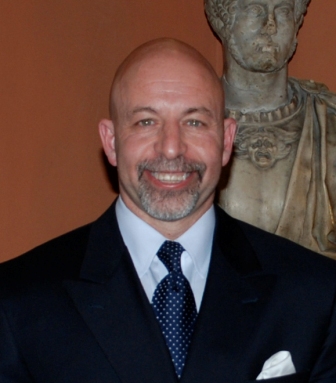 Prof. James Giordano, PhD, is Vice President for Academic Programs and Director of the Center for Neurotechnology Studies at the Potomac Institute for Policy Studies. In the latest post on his blog Neurosecurity, he writes about the ongoing debate over the application of neuroscience and neurotechnology in national security, intelligence and defense (NSID). Prof. Giordano notes that some in the neuroscientific community have called for their colleagues to disavow any involvement in NSID. But he argues that while ethical and moral probity must be maintained, avoidance is not the answer. Prof. Giordano writes, "Thus, I call for some – but certainly not all – neuroscientists and neuroethicists to be actively involved in the discussion and debate, as informed, experienced experts at those tables where guidelines and policies are made, to work proactively to provide lenses and voices to report what neuroscience can and cannot do, and to be participatory in the formulation of directives that shape and govern the ways that neuroS/T should – and should not – be utilized." Click here to read the post in full.
Prof. James Giordano, PhD, is Vice President for Academic Programs and Director of the Center for Neurotechnology Studies at the Potomac Institute for Policy Studies. In the latest post on his blog Neurosecurity, he writes about the ongoing debate over the application of neuroscience and neurotechnology in national security, intelligence and defense (NSID). Prof. Giordano notes that some in the neuroscientific community have called for their colleagues to disavow any involvement in NSID. But he argues that while ethical and moral probity must be maintained, avoidance is not the answer. Prof. Giordano writes, "Thus, I call for some – but certainly not all – neuroscientists and neuroethicists to be actively involved in the discussion and debate, as informed, experienced experts at those tables where guidelines and policies are made, to work proactively to provide lenses and voices to report what neuroscience can and cannot do, and to be participatory in the formulation of directives that shape and govern the ways that neuroS/T should – and should not – be utilized." Click here to read the post in full.
Past Events
ICTS Seminar - “Jerusalem: Outlook for War or Peace?” - Dec. 21, 2015
Issues including the historical, political, legal, and strategic context of Jerusalem was discussed by scholars and diplomats from the region.
Securing the Homeland: Information Sharing and the Role of Law Enforcement Seminar
On December 3, 2015, the Potomac Institute held a seminar entitled “Securing the Homeland: Information Sharing and the Role of Law Enforcement.” Michael Swetnam, CEO of the Potomac Institute for Policy Studies, provided the opening and closing remarks, and the panel included four distinguished g...
The Potomac Institute hosts ITAR Seminar
International Traffic in Arms Regulations (ITAR) Seminar hosted by the Potomac Institute for Policy Studies.
December 1, 2015
“U.S. Combating the Islamic State: Is a New Strategic Blueprint Needed?”
In view of the expanding challenges of the “Caliphate without borders” at home and abroad, is there a need for a new American strategy “to degrade, and ultimately destroy ISIL”?
Should the Islamic State be viewed as a threat equal or greater than al-Qa’ida for the U.S. and the internation...
ICTS Seminar - Russia’s Middle East Strategy: Quo Vadis?" - Oct. 23, 2015
Potomac Institute for Policy Studies
International Center for Terrorism Studies
Does Russia's latest involvement in the Syrian crisis marks a significant “game-changer” in the Middle East? Can this "surprise" development lead to an escalated confrontation or contribute to combating terrorism in...






